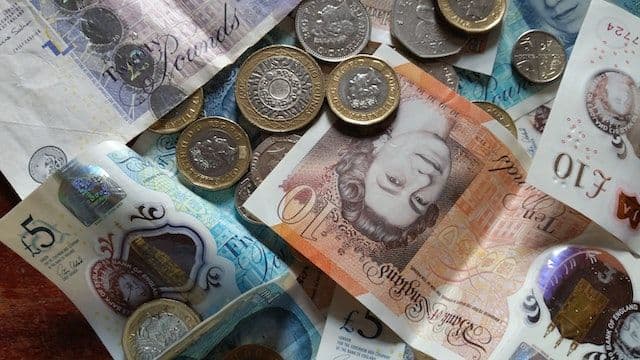How Much Tax Will I Pay On £500 A Week UK?

The idea of taxes may make you think about confusing numbers and percentages. But don't let this worry you. It's normal to feel unsure about the amount of tax you are meant to be paying.
If you earn £500 a week, the first question to ask is - will I be taxed on this amount? And the short answer is, yes.
If you are looking to earn over £500 a week, Prograd's algorithm is designed to help you find the perfect side-hustle. Simply fill in our 30-second form to get started today.
But back to the taxes...
How Does Income Tax Work In The UK?
If you earn £500 a week, before tax deductions, your yearly salary will be £26,000. Ballin’.
As of the financial year 2022/2023, there is a personal allowance threshold of £12,570. This is your tax-free allowance. Once your income goes over this threshold, you will start paying income tax at the basic rate.
In real terms, this means that of your £26,000, £13,430 is liable for tax.
What Is The Basic Tax Rate At £500 A Week?
Understanding the basic rate is the key to knowing much you will be taxed. As of the 2022/2023 financial year, income between £12,571 and £50,270 falls within the basic rate band of 20%.
Earning £500 a week will put you smack bang in the middle of this band. Consequently, 20% of your earnings above your personal allowance will be deducted from your salary each year.
Do I Have To Pay Anything Else?
On top of income taxes, you will also have to pay your National Insurance Contributions (NICs). This is the money that funds the country’s public services.
If you earn between £184 and £967 a week, 12% of your weekly earnings will go towards NICs. While this sounds like a lot, it’s worth remembering that public schools, public health services and state pensions all run on NIC contributions.
If you have a UK student loan, depending on your repayment plan, you may also have to contribute to this. The current payment threshold for Plan 1 is just over £22,000 per year. In basic terms, this means that student loan repayments are due at a rate of 9% on your earnings over £22,015 a year.
If you’re on Plan 2, this threshold is slightly higher at £27,295. Good news for the bank account!
What Is The Total Tax Calculation?
Now, time for some maths...
Removing a student loan, on £500 a week, your yearly income tax contributions will be £2,686 and your NICs will be £2,136. This will leave you with £21,178 in take-home pay a year.
Breaking this down weekly is a helpful way of clarifying your net income:
- Weekly income: £500
- Personal allowance: £12,570 per year / 52 weeks = £241.73 per week
- Taxable income: £500 - £241.73 = £258.27 per week
- Income tax: £258.27 × 20% = £51.65 per week
- National Insurance contributions: 12% of (£500 - £184) = £37.92 per week
- Total take-home pay per week: £410.43
Why Is It Important To Understand Tax Per Week?
Whether you look at it per month, per week or year, it is important to know how much you will be taxed to help with budgeting.
While it may seem tempting to look at your salary as the final figure you’ll get in your pocket, UK tax law means a portion of it will likely be fed into tax, NIC and student loan contributions every month.
Conclusion
Understanding tax is important to allow you to plan your weekly spending. However, £500 a week is a great salary and it’s important to remember that you’re only taxed on a portion of what you earn.
As long as you stay up-to-date on current tax regulations, paying your taxes should be a relatively stress-free process. Even if your employer handles your taxes directly, it is always important to check that the numbers are right.
Want to improve your financial literacy and work towards your savings goals? Get started with Prograd today.



